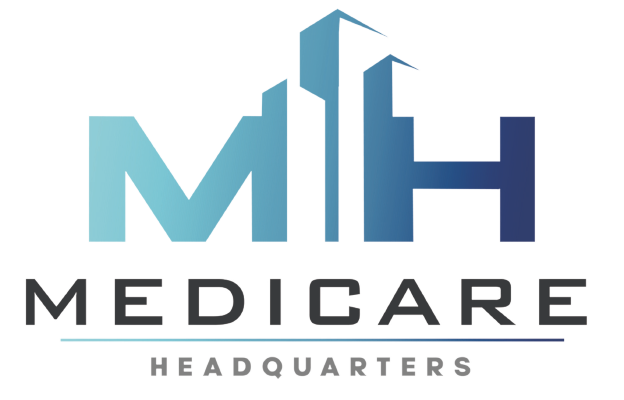
What is Medicare?
Medicare is a federal health insurance program designed to assist:
1. Individuals aged 65 and older
2. People under 65 with qualifying disabilities
3. Anyone diagnosed with end-stage renal disease (ESRD) or kidney failure
Original Medicare, consisting of Parts A & B, offers a variety of healthcare benefits. However, it’s not a comprehensive plan. While deductibles, coinsurance, and copays are generally competitive, there is no cap on out-of-pocket expenses, which could result in substantial costs for beneficiaries.
To bridge these coverage gaps, options like employer-sponsored insurance, Medicare Advantage (Part C), or a combination of a Medicare Supplement (Medigap) plan and a Medicare Prescription Drug plan (Part D) can provide additional financial protection.
The Big Question
Contact Us
Feel free to reach out to us for assistance with checking your Medicare eligibility.

Medicare Part A
Covers costs related to inpatient hospital stays, skilled nursing care, hospice services, and blood transfusions.
Please note, there is no annual cap on out-of-pocket expenses.
For most individuals, Part A comes with a $0 monthly premium.

Medicare Part B
Covers expenses for physician services, outpatient care, blood work, tests, and medical supplies.
Keep in mind, Part B also has no annual cap on out-of-pocket costs.
For most individuals, Part B premiums start at $174.70 per month.
Covering the Gaps of Original Medicare
Beyond certain group health plans, there are two primary ways to fill the gaps in Original Medicare coverage. Each option offers unique benefits, depending on what matters most to you. Fortunately, they’re straightforward to grasp, so take a deep breath—this process is simpler than you might think.

Hold on a moment—let’s not get ahead of ourselves!
Medigap plans typically come with higher monthly premiums compared to Medicare Advantage, so it's crucial to weigh both options carefully and choose a plan that fits comfortably within your budget.
Keep in mind that Medicare Supplement (Medigap) and Medicare Advantage plans can differ significantly between insurance companies. Premiums, deductibles, and out-of-pocket costs can vary by plan, and in some cases, you may need to purchase prescription drug coverage separately, as mentioned earlier.
Understanding the differences between these options and any potential future restrictions is vital. If you make a choice now and decide to change plans later, you could be subject to health underwriting, which means not everyone may be accepted.
Making the right decision today is key to avoiding potential risks down the road.
Medicare Part D
Provides prescription drug coverage.
Medicare drug coverage helps reduce your out-of-pocket costs for prescription medications. Even if you’re not currently taking any prescription drugs, it’s wise to consider enrolling in a standalone Part D plan or a Medicare Advantage plan that includes drug coverage.
If you choose not to enroll in Part D when you’re first eligible and don’t have other creditable prescription drug coverage (such as through an employer or union) or qualify for Extra Help, you’ll likely face a late enrollment penalty when you eventually join a plan.
Typically, this penalty will continue for as long as you have Medicare drug coverage.

Avoid Late Enrollment Penalties
A
Part A Penalty
Integer pharetra magna non ante blandit lobortis. Sed mollis consequat eleifend. Aliquam tristique purus.
B
Part B Penalty
Integer pharetra magna non ante blandit lobortis. Sed mollis consequat eleifend. Aliquam tristique purus.
D
Part D Penalty
Integer pharetra magna non ante blandit lobortis. Sed mollis consequat eleifend. Aliquam tristique purus.
Frequently Asked Questions
Answers to Common questions about Medicare for seniors.
Contact Medicare Headquarters - Ft. Lauderdale, FL
Need help with Medicare? We're here to assist seniors with coverage options, benefits, and enrollment. Fill out the form, and a Medicare expert will get back to you shortly.
Learn more about the best Medicare plans available in your area
Once we receive your contact information, we will help you explore the best Medicare plans available in your area. Our goal is to maximize your Medicare coverage.

